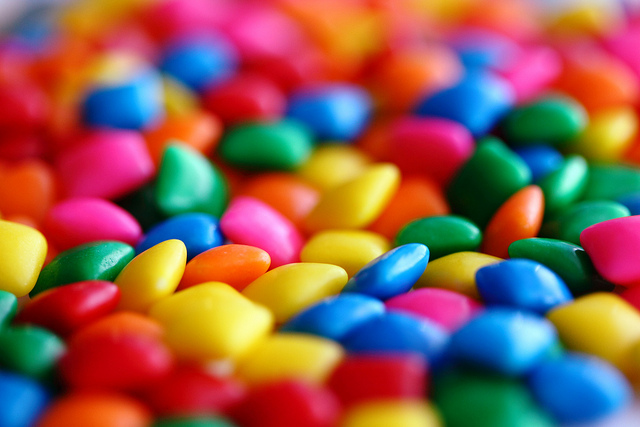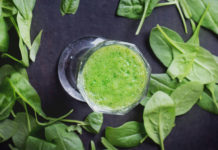We know about the negative publicity surrounding high fructose corn syrup (HFCS). Due to this, many manufacturers of food and beverage are replacing this processed sweetener with old-fashioned white sugar. It is often added to products ranging from tomato sauce and soft drinks to bread and salad dressing.
Although I feel that white sugar is somewhat better to use than HFCS, it can be harmful as well. Evidence continues to mount that elevated levels of blood sugar are linked to an increased incidence for, and faster progression of, many forms of cancer.
Reducing intake of any type of processed sugar and refined carbohydrates not only reduces cancer risk, but also enhances cancer treatment in those battling the disease. However, the nutrients in fresh and frozen fruit, which contain natural sugar (fructose), have been linked to reduced cancer risk. This is thought to be due to the many other cancer fighting, anti-oxidant properties of fruits.
What Cancers Do High Levels Of Glucose Increase?
In a study that appeared in the medical journal PLOS Medicine, Swedish investigators tracked blood glucose and rates of cancer and cancer deaths among more than 500,000 men and women for 10 years.
The researchers found that women with the highest glucose levels had an increased risk of developing cancers of the pancreas, bladder, uterus, cervix, and stomach.
This study also showed that cancer risk and occurrence were independent of body weight. This was a surprising finding, as doctors have traditionally attributed any potential link between cancer and high intake of dietary sugar and other forms of refined carbohydrates to obesity, another risk factor for various cancers.
In a study published in the medical journal Cancer Epidemiology, Biomarkers & Prevention, researchers followed more than 60,000 men and women in Singapore for 14 years. It was found that those who consumed two or more sugared sodas per week had almost double the risk of developing pancreatic cancer than those who did not.
Why Sugar Increases The Risk Of Cancer

The mechanisms linking high sugar intake to increased cancer risk continue to be studied. Presently, the reason is thought to be that increased refined sugar consumption leads to higher circulating levels of insulin, as well as a related hormone, insulin-like growth factor. It is thought that these two hormones promote the growth of some cancers. Cancer cells are also believed to feed directly on blood glucose, so increased consumption ensures a steady food supply for cancer cells.
It is important to take steps to reduce sugar consumption to reduce cancer risk. This is done by adopting a low glycemic-index diet. Glycemic index (GI) indicates how quickly your digestive system converts a given food into blood glucose. High glycemic index foods cause blood glucose to spike rapidly, along with the corresponding rise in insulin production. Lower glycemic index foods produce a much slower rise.
Eat More Of These Foods
Eat more low glycemic index foods, which are typically high in protein and complex carbohydrates. This produces a slow, gradual rise in blood glucose levels.
- Chicken, turkey, and fish (especially wild caught salmon). Always opt for free-range chicken and turkey when possible. Avoid processed deli meats and hotdogs.
- Non-sweetened yogurt (organic) and eggs (again free-range)
- Low glycemic vegetables such as artichokes, asparagus, bell peppers, broccoli, Brussels sprouts, cabbage, cauliflower and onions.
- Low glycemic fruits such as cherries, grapefruit, plums, apricots, and oranges.
The glycemic index of various foods may be checked at www.GlycemicIndex.com.
Eat Less Of These Foods
Reduce your intake of refined, simple carbohydrates. These include sugared soda, candy, many other foods containing sugars such as sucrose, fructose, corn syrup, dextrose, and maltose (read product labels carefully). Food containing refined flour, processed snack foods, fast food, and high glycemic vegetables such as white and red potatoes, corn and turnips should also be greatly reduced.
Take The Proper Supplements To Help Regulate Blood Glucose
I never recommend buying your supplements at the grocery store. They are mass produced, and the quality often varies greatly between products.
I recommend that my patients take a high-grade vitamin and mineral supplement containing therapeutic amounts of magnesium and chromium to help stabilize blood sugar levels. A formula I have used in my practice for many years with good results is Diamond Nutritionals’ Foundation Vitamins. The dose for adults is 3 once a day. Many benefit from taking 3 twice a day.
All Diamond Nutritional products are proudly made in America under the strictest quality control measures in the industry.
Exercise Regularly To Help Regulate Blood Glucose
Regular exercise lowers blood glucose. Exercises such as walking 20-30 minutes three times a week offers maximal benefit, but any exercise is better than none. Check with your physician before starting an exercise program to find out what is best for your particular needs.
—
Photo credit:








